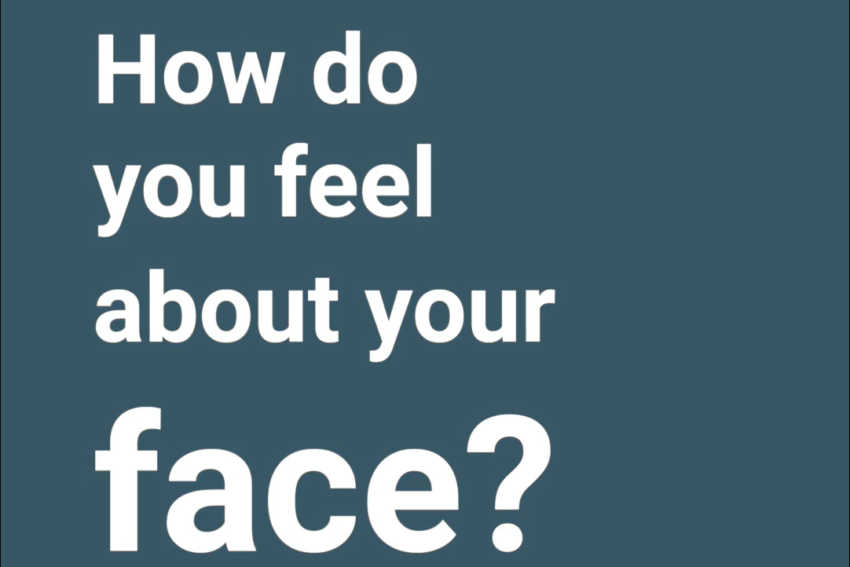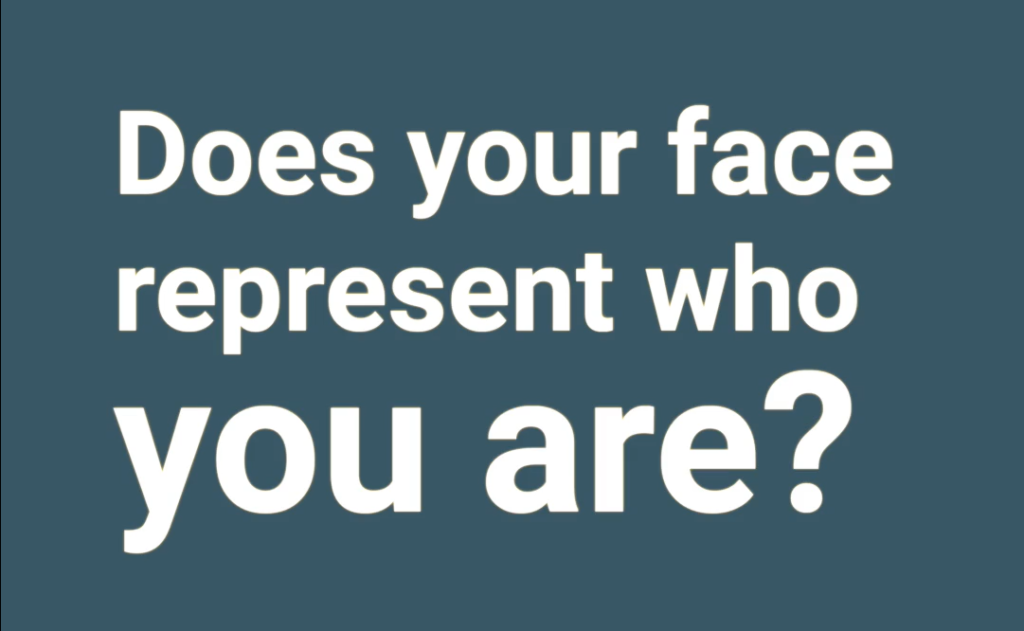
Future Faces is one of four events and activities that AboutFace is running for the Being Human Festival in 2020. Each day during the Festival we will premiere videos of our collaborators speaking about their faces, face transplants, and what their appearance means to them. Follow us at @AboutFaceYork on Twitter and Instagram to learn more and explore your questions about donation and surgery.
Future Faces
This November, we’re asking you a question. How do you feel about your face?
On the surface, this may seem a simple question. Do you like your face or not? But it’s also deceptive. Once you start thinking about it, more questions start to emerge: would you change it if you could? How would you describe it to someone else? What does it mean to you? These questions might be more difficult to answer, and they connect with something more than a superficial response to our personal appearance. These questions drill deeper. How do we connect with our faces? Our answers begin to reveal something less tangible than an image. They draw closely on our identities and emotions.
This is why we are asking this question for the Being Human Festival, which is running from 12-22 November in 2020. It reflects how much our project has moved forward since our launch event. Our questions and our thinking have become more complex as we learn more about faces, surgery, and contemporary cultural responses to faces and perceptions of appearance.
So, we asked our participants in Future Faces: ‘how do you feel about your face?’ And we will be sharing their responses in a series of short videos aired on our Twitter and Instagram feeds throughout the Being Human Festival. We also ask our audience to join in. We want to hear from as many people as possible! How do you feel about your face?
But we aren’t stopping there.
As our research has developed, so have our interests. This year we’re also asking how people think others see them. It is a question that pivots the focus. And the answers we’ve received so far have been really interesting. One person worries that they don’t look as gentle as they are, another believes that it depends on the person observing them. For me, I’ve always been told that my face betrays exactly how I feel about something. It hasn’t always been a good thing!

We’re asking people to think about whether their face represents who they are. I found this particularly tough to answer. I just don’t know. Others see my face when they speak to me. They hav learned over time to read every small or significant emotional change as expressed in my features. Perhaps to them, my face does represent who I am. But I feel like I’m so much more than my face. I am my feelings, my experiences, my beliefs and my skills. I don’t see my face as often as other people do, so perhaps this question might generate different responses if we flipped it, asking friends whether our faces represent who we are. These questions will evolve as the project continues to progress – and stay tuned for more information about our exciting new Museum of Faces, that will launch in summer 2021.
And finally, in Future Faces we continue to wonder how people feel about face transplants. Our research has shown that many people don’t know much about the procedure. We seek to change that with our flagship Being Human Festival event, What’s in a Face? We strongly recommend that you book your ticket now, and join us not only to learn more about face transplants, but about how this medical intervention connects with emotions, identity, and art.
Face transplants continue to represent a new world, in keeping with the Being Human Festival theme this year. They are an experimental form of surgery that takes us to a place that we might not be ready for. At AboutFace, we seek to bring to a public audience information about this procedure, which is so often confined to medical journals.
We also want to help our audiences to understand that a face transplant is not only the procedure itself, but a careful consideration of patient welfare before surgery, and lifelong aftercare following it. The transplant is a process, not a single moment.
During Future Faces, you’ll be able to hear the range of responses from our participants, but we also want to hear from our audiences! Why not join in with our conversation? Hear what others think and tell us your own opinions. We hope that it will encourage you to think about your own appearance and how far it connects with your sense of self.
More widely, we hope that watching these videos and attending our other Being Human Festival events will help our audiences to think about face equality and the cultural beauty standards that surround us. This is the environment in which face transplants take place, and it is vitally important that we understand this if we are to understand the history of face transplantation.
We hope to see you at What’s in a Face? and will be sharing more about this and our other short film premieres in the coming weeks. Keep an eye out for updates, or sign up to our mailing list at the bottom of this page.
